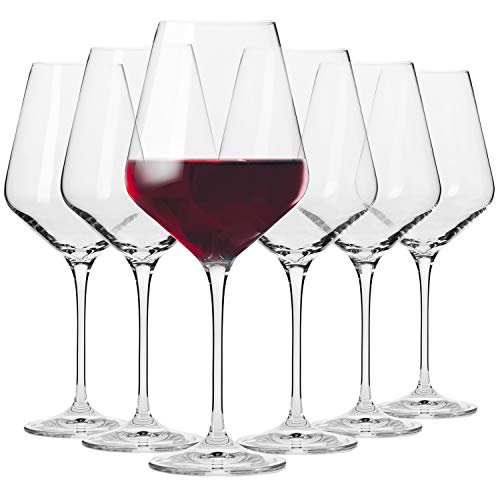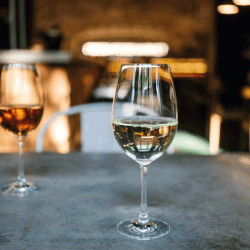Suppose you are new to sampling wines and you wonder if a wine glass could be microwaved? Perhaps you have been enjoying wine tastings for years and have contemplated heating your over-chilled wine in the microwave? Is it safe to do so? We've researched these wine-related questions and have found informative results to share with you!
Yes, most wine glasses are safe for microwaving, provided the glass is heat tempered. However, there are types of wine glasses that cannot go in the microwave. Bubble, ceramic crystal, colored, and metal-trimmed wine glasses are prohibited from microwaving because the bubbles and metals will spark and could cause an appliance fire.
Are you interested in learning more about microwave safety and glass products? Or how to tell if your glasses are microwave safe? Please continue reading; we have ample information to share with you regarding the fascinating world of wine glasses!
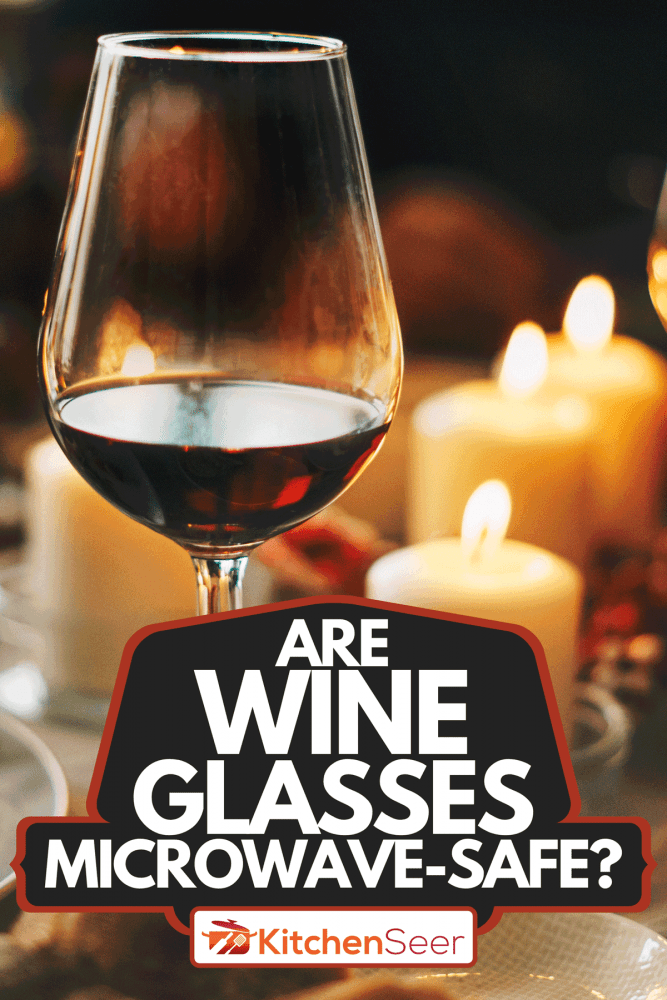
Can you put a wine glass in the microwave?
Absolutely, heat-tempered or heat-resistant wine glasses are deemed safe for microwaving. However, any wine glasses that have gold, silver, glitters, inlays, or are painted with metallic paints are not safe for microwaves. Those decorative touches contain small amounts of metal that will cause your microwave to spark and could start a fire.
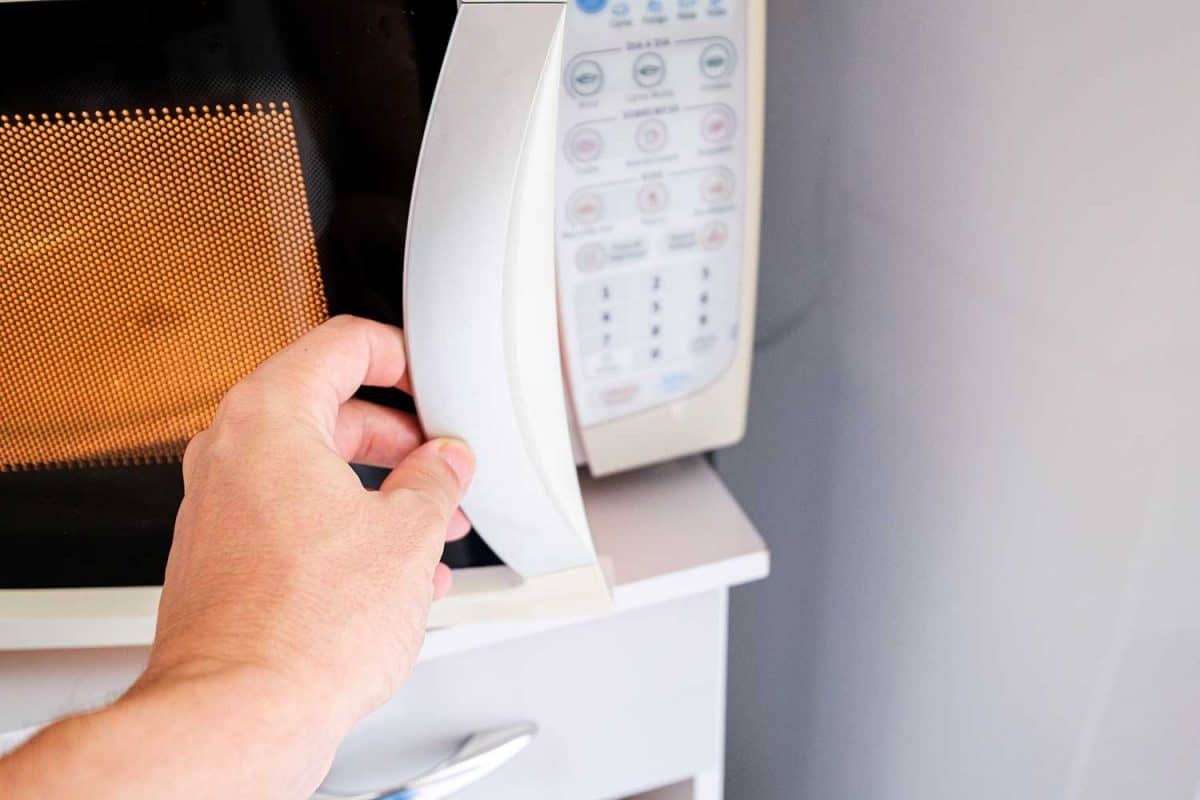
Precautions for heating wine glasses in the microwave
Never use bubble glassware in a microwave. Because the small air pockets encapsulated in the glass will heat quicker than the glass itself. The heated bubbles will cause the wine glasses to shatter from the pressure buildup of hundreds of tiny air pockets.
Also, inspect your glassware for any chips, dents, or scratches. Those deformities could cause the glass to heat unevenly and trigger the unstable glass to shatter.
Crystal wine glasses or cups are never compatible with microwaving. The crystal designs may contain lead glass that could explode inside the microwave. Many brands of glasswares contain small traces of lead within the colored glass materials. Depending on the structure of the glass and microwave temperature, the traces of lead could spark and shatter.
Colored glass and glass-ceramics should be excluded from microwave usage. Because the color agents in the materials may have caused invisible air pockets in the glass that when the microwaves heat the glass the air pockets rapidly expand and cause the glass to explode or shatter.
Suppose you have a wine glass that is an antique with extremely fragile glass. You may want to refrain from attempting to microwave it because antique thin glass is unlikely to be heat resistant or heat tempered. Also, antique glass could shatter from the stem when removed from the microwave.
If you intend to microwave wine regularly, you may want to purchase microwave-safe wine glasses to avoid potential issues.
Click here to view the microwave-safe red wine glasses on Amazon.
Can you microwave glass to dry it?
Yes, you can microwave glass products that are heat resistant or heat tempered to dry them quickly, or as a method of sanitizing the glasses. Generally, the glasses are washed and placed wet in the microwave and microwaved at the highest power setting for 60 seconds.
Remove the glass with hot mitts; the glasses will be extremely hot! Place the heated glasses on a dry towel to finish drying before putting those in the cabinet.
Moreover, if the glasses are not heat-resistant, this method will not work and should be avoided to prevent shattered glass inside your microwave. Always double-check the glassware to ensure that your glasses are microwave-safe before trying this method. If a wine glass does shatter, remember to wear gloves or mitts to remove the shards of glass. Those tiny glass pieces are difficult to see, and even the smallest pieces can cause cuts and glass slivers.
Are you interested in learning the best methods for storing cocktail and wine glasses? Click here to read our article that provides detailed information on this topic!
Click here to view silicone oven mitts at Amazon.
How can you tell if a glass is microwave safe?
Firstly, check if the glassware has a seal on the bottom that states whether it is dishwasher or microwave safe. Perhaps you cannot find a seal. Check the original box or the manufacturers' website for product description details.
Suppose you don't have the box or are unsure of the manufacturer. Consider the tried and true method suggested and tested by the Leaf network to determine if your glass container is microwave safe.
Firstly, check your microwave and set it at 700-800 watts. Secondly, fill the dry glass with room temperature water and set it in the center of the microwave. Thirdly, microwave for 60 seconds. Fourthly, remove the glassware with oven mitts in case it is hot.
Check the temperature of the glass. If it is very warm or hot, the glass is not microwave-safe. Suppose the glass is cool or warm and the water inside is hot. This is an indication that the glassware is microwave safe.
After you have determined whether the glassware is safe or unsafe for microwaving, mark it with a sharpie to avoid confusion in the future. If the glassware is not safe for microwave cooking, don't store it with your other microwave-safe glasswares. Especially if you live with others in your household who may mistakenly use it in the microwave and have issues with shattering glass.
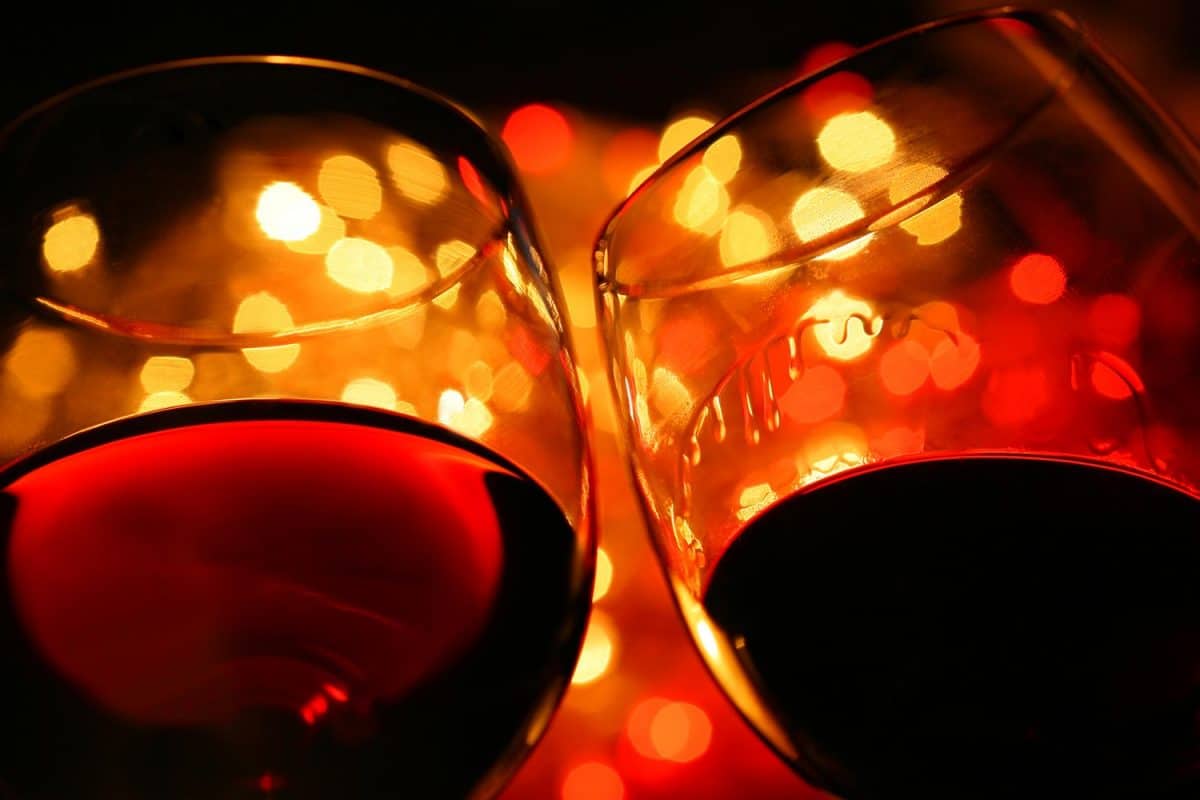
What kind of glass can be used in the microwave?
All manufacturers must state whether their glass product is microwave-safe or not. This regulation is a safety requirement to protect consumers from accidental harm from misusing glassware products. Also, the University stated to only use microwave-safe glasswares to reduce the risk of damages and injuries.
Pyrex is one of the most popular types of glassware used for preparing or reheating foods and drinks in the microwave. The heat and freeze resistant materials are highly durable and are guaranteed lead-free. Moreover, Pyrex does have a few precautions to consider.
Do not microwave Pyrex containers directly from the freezer or refrigerator. They need time to thaw before microwaving. If the Pyrex is microwaved cold or frozen, it probably will crack.
Home cooks and professionals highly regard borosilicate glass for microwave usage, provided the glassware is allowed ample time to adapt to changing temperatures before microwaving. Borosilicate is created from silica and boron trioxide compounds, and manufacturers add alumina, boric oxide, silica sand, soda ash, and boron trioxide.
Generally, 15% of the chemical composition is boron trioxide, which creates durability and a low coefficient of thermal expansion, which means the glass is unlikely to crack from the polarities of freezer or oven temperatures.
Click here to view a Pyrex set at Amazon.
Would you like to learn more about borosilicate glass? Please click here to read our article that discusses this unique glass in great detail.
Additional thoughts
Wine glasses are often an aesthetically pleasing aspect for dinners, wine tastings, and other social events to enjoy with friends and family. Be mindful to choose durable and safe glasses to prevent the many potential issues we've discussed in this article regarding exploding and shattering glasses.
Investing in microwave-safe glassware or plastic wine glasses could help reduce the potential for injuries and disrupted parties, especially if you have small children or pets in your home.
Consider the following safety considerations for your next wine-related event:
- Appoint a designated driver before going out
- Always drink responsibly, and if in doubt, get a safe ride home via a trusted friend or taxi
- Check-in with friends while you are out
- Do not drink if you are pregnant or nursing
- Do not leave drinks unattended in public places
- Eat food when drinking
- Taking medications? Consult your doctor or pharmacist to discuss any potential drug interactions with alcohol
- Keep all alcohol products away from children and pets
- Do not operate any machines or vehicles
- Never drink and drive
- Never accept drinks from people you do not know
In closing
Wine glasses are the pentacle glassware at wine tasting events that can be a fun pastime for friends and family to gather for a few laughs, sips, and snacks when done so in a responsible matter. Always remember to check if your wine glass is microwave-safe before placing it in the microwave. Please visit Kitchenseer.com soon for more relevant and informative content!
Please, be sure to check out some of our other posts to help further your culinary and wine-related knowledge base:
Are Wine Glasses Dishwasher Safe?
How To Store Wine And Cocktail Glasses
How Long Should You Take To Drink A Glass Of Wine?

